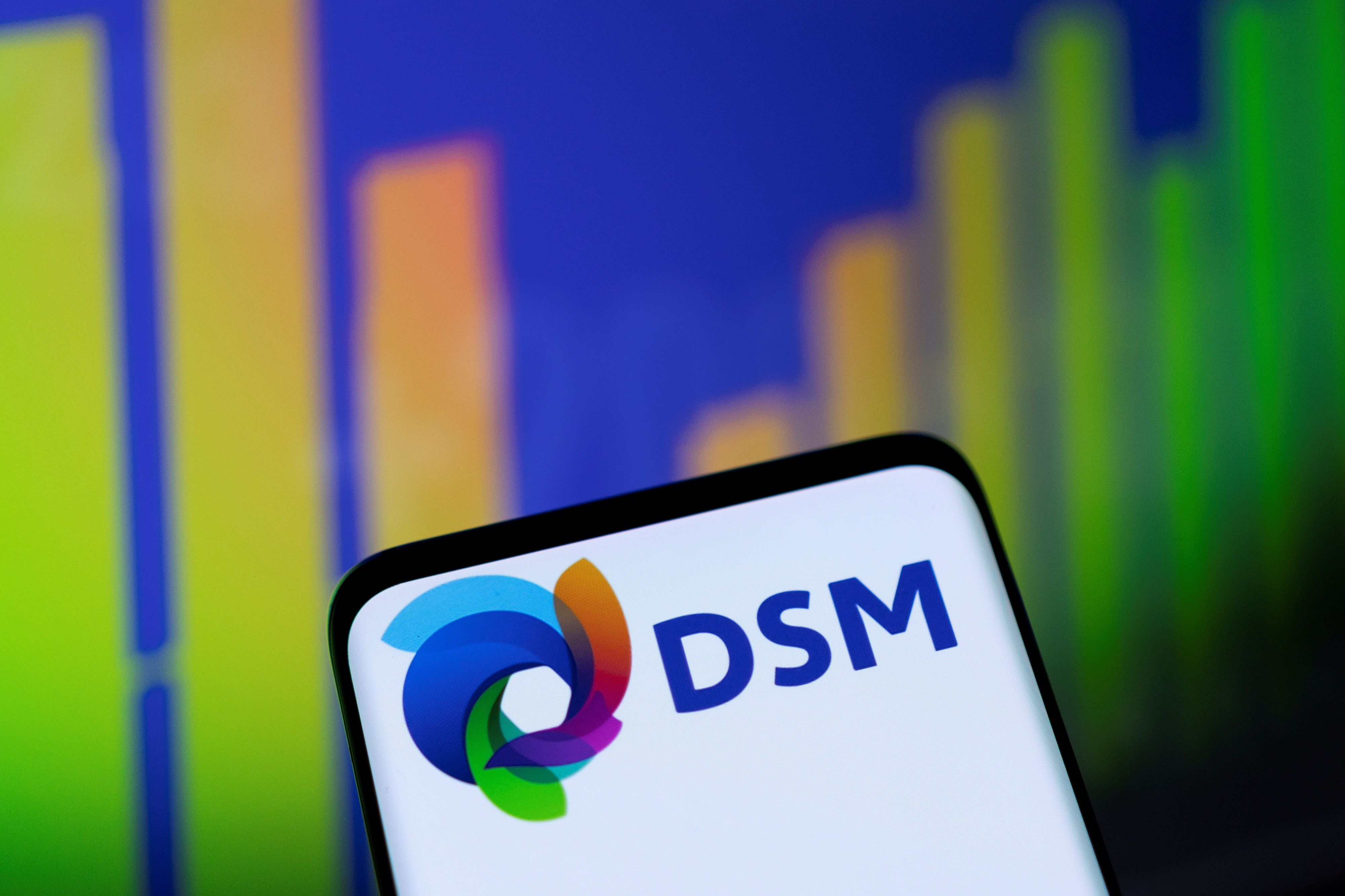
Dutch specialty chemicals maker DSM (DSMN.AS) said on Tuesday it was seeing a consumer shift away from more expensive meats towards poultry as people grapple with rising prices.
Shortages, destocking and weaker demand for meat products in China, where pork sales suffered from COVID-19 lockdowns, tempered the first-half performance of DSM, whose products range from vitamins and food supplements to specialised plastics.
Aug 2 (Reuters) – Dutch specialty chemicals maker DSM (DSMN.AS) said on Tuesday it was seeing a consumer shift away from more expensive meats towards poultry as people grapple with rising prices.
Shortages, destocking and weaker demand for meat products in China, where pork sales suffered from COVID-19 lockdowns, tempered the first-half performance of DSM, whose products range from vitamins and food supplements to specialised plastics.
“Down-trading itself (does) not necessarily have to be negative for us,” co-CEO Dimitri de Vreeze told Reuters after the company reported earnings for January to June 2022.
The group, which is selling its materials division to focus purely on sustainable food and health products, reiterated its full-year guidance for continuing operations and raised its targets for greenhouse gas emission reduction.
Aug 2 (Reuters) – Dutch specialty chemicals maker DSM (DSMN.AS) said on Tuesday it was seeing a consumer shift away from more expensive meats towards poultry as people grapple with rising prices.
Shortages, destocking and weaker demand for meat products in China, where pork sales suffered from COVID-19 lockdowns, tempered the first-half performance of DSM, whose products range from vitamins and food supplements to specialised plastics.
“Down-trading itself (does) not necessarily have to be negative for us,” co-CEO Dimitri de Vreeze told Reuters after the company reported earnings for January to June 2022.
The group, which is selling its materials division to focus purely on sustainable food and health products, reiterated its full-year guidance for continuing operations and raised its targets for greenhouse gas emission reduction.
However, shares in DSM, which had rallied before the company reported its results, were down 2.7% at 1207 GMT.
“My guess is the market was hoping for a guidance upgrade, like we saw with Symrise this morning and Croda last Friday,” Morningstar analyst Rob Hales said.
Sebastian Bray, analyst at Berenberg, said that while DSM’s earnings before interest, tax, depreciation and amortisation (EBITDA) were “robust”, its free cash flow was “lacklustre”.

DSM logo and stock graph are seen in this illustration taken, May 1, 2022. REUTERS/Dado Ruvic/Illustration
Register now for FREE unlimited access to Reuters.com
Aug 2 (Reuters) – Dutch specialty chemicals maker DSM (DSMN.AS) said on Tuesday it was seeing a consumer shift away from more expensive meats towards poultry as people grapple with rising prices.
Shortages, destocking and weaker demand for meat products in China, where pork sales suffered from COVID-19 lockdowns, tempered the first-half performance of DSM, whose products range from vitamins and food supplements to specialised plastics.
“Down-trading itself (does) not necessarily have to be negative for us,” co-CEO Dimitri de Vreeze told Reuters after the company reported earnings for January to June 2022.
The group, which is selling its materials division to focus purely on sustainable food and health products, reiterated its full-year guidance for continuing operations and raised its targets for greenhouse gas emission reduction.
However, shares in DSM, which had rallied before the company reported its results, were down 2.7% at 1207 GMT.
“My guess is the market was hoping for a guidance upgrade, like we saw with Symrise this morning and Croda last Friday,” Morningstar analyst Rob Hales said.
Sebastian Bray, analyst at Berenberg, said that while DSM’s earnings before interest, tax, depreciation and amortisation (EBITDA) were “robust”, its free cash flow was “lacklustre”.
DSM said it was now targeting a 59% reduction in scope 1 and 2 greenhouse gas emissions by 2030 from 2016 levels, up from 50% previously, and was aiming to source 100% of its electricity from renewables by that date, up from a 2019 target of 75%.
De Vreeze said DSM would look at new actions to take each year, while co-CEO Geraldine Matchett pointed out that its internal price for carbon was a crucial driver in the transition as it influences capital allocation-related decisions.







